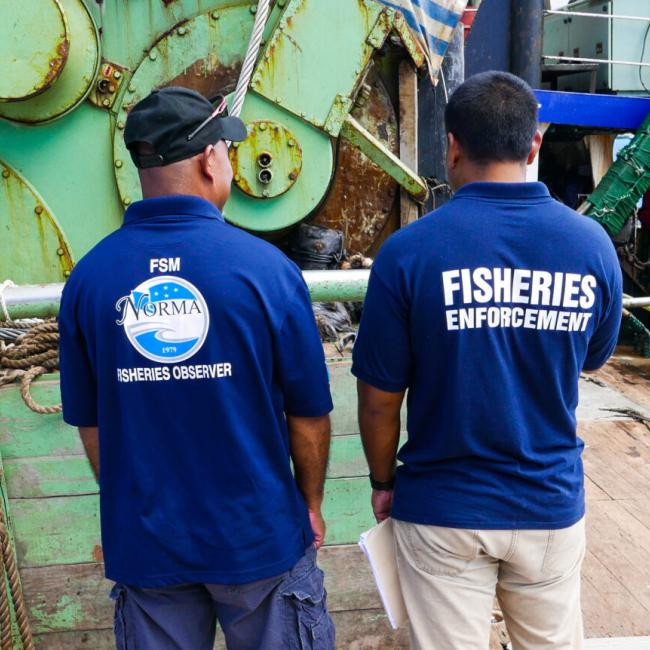Capacity Development


Capacity Development
The capacity development of fisheries MCS, compliance and enforcement officers is central to the work of the IMCS Network.
The work of the IMCS network to support MCS capacity development can take many forms from direct capacity development and mentoring to capacity development needs assessments and the identification and promotion of capacity development opportunities and support to participate.
We work with our members, observers and partners to support initiatives that improve the effectiveness of fisheries compliance, MCS and enforcement. The IMCS Network approach to capacity development is centred on the following core principles:
- MCS capacity development needs to be sustainable - we promote a train the trainer approach to capacity development to ensure this leads to long-term, sustainable development.
- MCS capacity development needs to be tailored to context - to be effective capacity development should recognise and reflect the local, national and regional context in which it is being delivered, the needs and capacity of the partners we support, and the IUU risks that exist in their regions.
- MCS capacity development is underpinned by collaboration and cooperation - we can and should learn from each other to improve the effectiveness of our fisheries compliance, MCS and enforcement delivery.
The IMCS Network also leads capacity development efforts through our collaboration in the JAC. This work is closely aligned with the JAC focus on increasing access to data and technology, but it also promotes increasing compliance and addressing and responding to IUU fishing and associated crimes, including taking appropriate enforcement action when relevant.